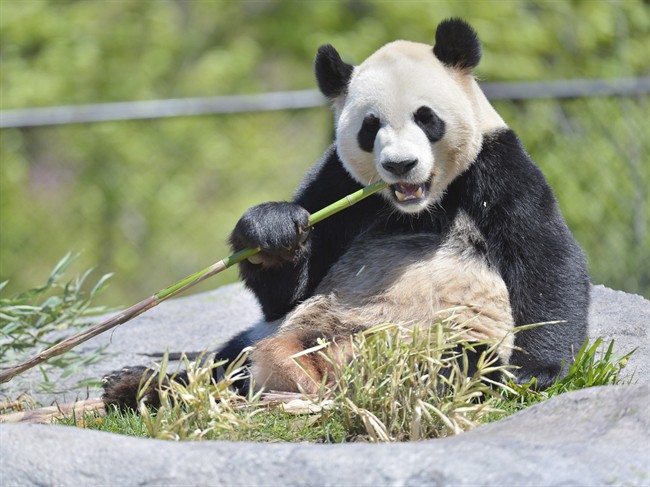TORONTO – Now there’s another reason to save the pandas: they’re environmentally friendly.

Scientists found that bacteria in the guts of pandas could help create biofuel.
They presented their findings at the 246th National Meeting & Exposition of the American Chemical Society (ACS) on Tuesday.
Ashli Brown, Ph.D., who heads the research, said that she and her students out of Mississippi State University, have mined the feces of Ya Ya and Le Le, two giant pandas from the Memphis Zoo, and found more than 40 microbes living in the guts of the pandas.
Read: Non-profit to turn Toronto Zoo waste into green energy
Brown said that corn stalks, corn cobs or other plant material that isn’t used for food would be a better source of ethanol, a biofuel. But to do so, special processing is needed to break down something called lignocellulose which is costly. Scientists have been seeking bacteria that could make the process easier. The bacteria in the guts of pandas are a prime candidate.
“We have discovered microbes in panda feces might actually be a solution to the search for sustainable new sources of energy,” said Brown. “It’s amazing that here we have an endangered species that’s almost gone from the planet, yet there’s still so much we have yet to learn from it. That underscores the importance of saving endangered and threatened animals.”
The panda bacteria can break down the lignocellulose into simple sugars which can be fermented into bioethanol. They also found that the bacteria use those sugars and change them into oils and fats for biodiesel production.
Brown and her colleagues are working to collaborate with the Toronto Zoo to collect further samples from the pandas which arrived in 2013.
- Enter at your own risk: New home security camera aims paintballs at intruders
- Boston Dynamics unveils ‘creepy’ new fully electric humanoid robot
- Ontario First Nation calls for chemical plant to be shut down amid ‘dangerously high’ benzene levels
- Nova Scotia scraps spring bear hunt idea, public ‘very divided’ on issue




Comments